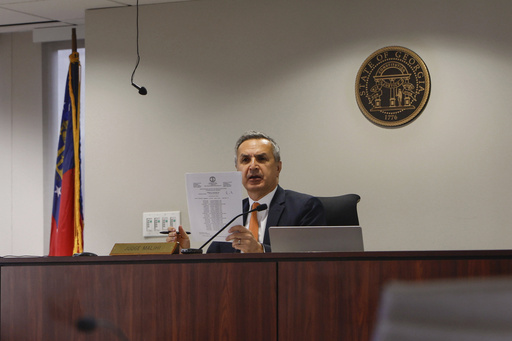Challengers in Georgia are pushing for Robert F. Kennedy Jr. to be removed from the November ballot, arguing that his use of a New York address on Georgia ballot access petitions is fraudulent. Concerns were raised after a New York court determined that Kennedy does not actually live at the address he provided. A trial has opened in Long Island, New York, regarding another lawsuit challenging Kennedy’s inclusion on the state’s presidential ballot.
In Georgia, challengers are asserting that Kennedy’s petitions should be invalidated due to the false New York address he used for ballot access. Kennedy’s lawyer presented evidence of his voting history in New York as proof of his residency there, refuting the claims made by challengers.
There are disputes over Kennedy’s status as an independent candidate, with arguments that he is not truly independent due to running as the nominee of multiple parties in various states. The issue of ballot places is also being challenged for independent candidate Cornel West, the Green Party, and the Party for Socialism and Liberation’s Claudia De la Cruz in Georgia.
While the chances of these candidates winning Georgia’s electoral votes are slim, their presence on the ballot could impact the state’s political landscape. Legal proceedings are ongoing, with a decision required before military and overseas ballots are mailed out from September 17th.
The challenges extend to other states like New York and Pennsylvania, where similar allegations of fraudulent addresses and petition irregularities have been raised against Kennedy. Civil organizations and political parties are actively involved in backing these challenges against various candidates.
Despite the legal battles and challenges, Kennedy’s campaign asserts that it has obtained enough signatures for ballot access in all 50 states. The situation remains contentious as legal proceedings continue in multiple states, with Kennedy expected to testify in ongoing trials.


